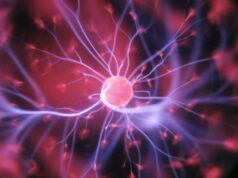
In a randomised pilot study, temporary spinal cord stimulation (SCS) has demonstrated efficacy in the suppression of postoperative atrial fibrillation (AF) following coronary artery bypass graft (CABG) surgery, resulting in a lower burden of AF in comparison with patients receiving standard medical therapy. Temporary SCS also demonstrated a “good safety profile” in the study.
This is according to data from a late-breaking abstract presentation at this year’s Heart Rhythm Society annual meeting (HRS 2021, 28–31 July, Boston, USA and virtual), which saw Alexander Romanov, head of the Center of Invasive Electrophysiology at the Ministry of Health’s Meshalkin National Medical Research Center in Novosibirsk, Russia, detail 30-day safety and efficacy outcomes from a first-in-man, randomised pilot study of early, perioperative SCS to prevent post-CABG AF.
The prospectively defined primary safety endpoint of the study, Romanov stated, was occurrence of adverse events including death, stroke or transient ischaemic attack (TIA), myocardial infarction (MI), and kidney or spinal cord injury, while the primary efficacy endpoint was occurrence of AF or any atrial tachyarrhythmias lasting more than 30 seconds. Both were tested for over the course of the 30-day postoperative period.
A total of 52 patients, with a mean age of close to 60 years, were enrolled in the trial and randomised into two groups, with 26 receiving SCS plus standard medical therapy following CABG—that being a beta-blocker medication—and 26 receiving standard medical therapy alone. Romanov noted that patients in the prior group began receiving SCS three days before CABG surgery and stopped receiving it seven days post-surgery—with the therapy also being deactivated during the surgery itself.
The study met its primary safety endpoint, as no occurrences of the above adverse events were seen in either group at 30 days. In addition, at the 30-day follow-up timepoint, standard medical therapy plus temporary SCS resulted in an 89% reduction in the risk of any atrial tachyarrhythmias compared to CABG alone—with p-values suggesting a statistically significant difference between the study groups. Romanov reported an AF or atrial tachyarrhythmia occurrence rate of 3.8% in the CABG plus SCS group, and 30.2% in the CABG group. He added that the mean AF burden on continuous external electrocardiogram (ECG) monitoring and the median total duration of AF episodes were both significantly higher in the CABG-only group as well.
Romanov concluded his presentation by stating that, based on these findings, SCS could represent a “new paradigm” for AF prevention—but also requires further investigation via more long-term studies, with one-, three- and five-year follow-up now planned in the current study too.













